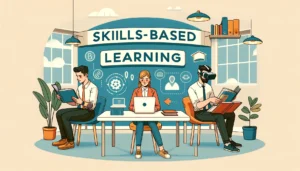Long-term vs Short-term hires: attracting the best people
- 4 Min Read
Could the rise of the freelance economy be the key to businesses overcoming the ever-growing challenges of the talent market? HRD Connect investigates.
- Author: Louron Pratt
- Date published: Oct 2, 2019
- Categories

The talent market is continually changing and becoming more competitive. For organisations to win the war on talent, they are constantly having to adjust what they offer when they hire. As an alternative, many organisations are looking towards short-term hires to fit their needs. To find out more about the current state of the gig economy, compared to hiring permanent staff, HRD Connect spoke to Mathias Tao Agger Linnemann, CEO and Co-Founder, Worksome.
Why should businesses look to the gig economy to fit their hiring needs?
There’s a huge talent gap – it’s becoming increasingly hard to attract skilled people because the pool is simply not big enough. The reason for this shrinking pool is because more people are joining the freelance economy.
HR professionals need to understand and investigate these two groups. There is the traditional pond, looking for traditional jobs, which is becoming increasingly hard to compete in. Then there’s the freelance pond, which is growing rapidly. Hiring this freelance pond is driven by new technologies, which means the process is very flexible, fast, and clear. Many companies that understand that transformation, gain a competitive advantage.
The matchmaking between employer and employee is driven by traditional recruitment. You have a lot of people dedicated to searching and interviewing and looking at who’s got the right skills for the job. Those processes aren’t as efficient as they ould be. Technology is now advanced enough to do all the heavy lifting involved. Which is what we do at Worksome.
Are there any specific sectors that favour short-term hires?
It’s typically companies that experience rapid growth. Some companies have huge potential, but can’t realize it unless they quickly accelerate their hiring, that’s where freelancers come in. You can expand the contract in sync with how the company expands. So, we do work with a lot of start-ups that have this rapid growth, they can request a new project manager and be successful in that hiring process in a week.
Large enterprises also favour short-term hires with finance and IT especially. A big IT department would typically consist of 30% contractors.
Could this increase in short-term hires eventually replace long-term hires?
We’re currently in a big paradigm shift. In general, the most successful companies are young like Google, Amazon, Facebook, Uber. In a matter of decades, they managed to take over entire markets and renew their dynamics and markets rapidly. These companies tend to work differently in comparison to traditional companies. These new companies have a distinct view of their workforce. So, HR departments are responsible for permanent employees, whereas contractors and freelancers are not within their scope. That’s a huge problem, when 30% of your entire workforce is freelance. There’s a huge opportunity for HR to embrace the freelance economy, and proactively find smarter ways to utilize them.
The average time to hire in the UK is three to five months. And that’s sometimes way too long for most companies because things are speeding up. Companies can tap into the freelance economy and hire within seven days.
Today, some companies favour hiring permanent employees, but if the permanent ponds of talent are becoming more competitive, you have to improve perks and salaries to attract the right people, which is fine if you’re a Google or a high-class company, but many businesses in the UK can’t use the same tips and tricks to attract the very best talent. Tapping into the freelance economy can be there as another potential option.
What are the biggest challenges for companies looking to reinvent their business around the gig economy?
It requires a change in the leadership mentality and how companies work. It’s very much about acknowledging that you must work in more agile ways, you must be mindful that most companies are changing rapidly into project-based modes of operation.
Implementing the gig economy into a business can take a long time. So, having this ability to scale up and down in almost real-time, in sync with what’s happening in the business, means that you can start working in entirely new ways.
The freelance economy is not perfect. And we’re working on various things to make it more viable and sustainable in the long term, both to assist companies that work with short-term employees, but also to aid the experience of individual freelancers.









